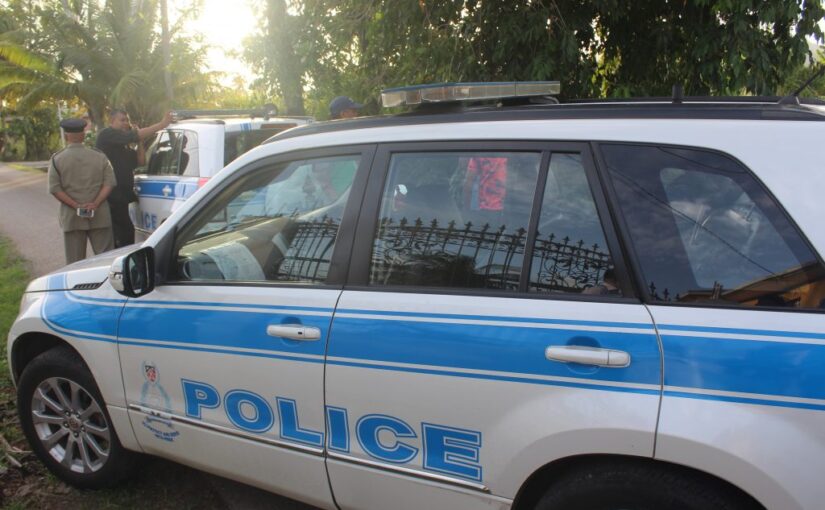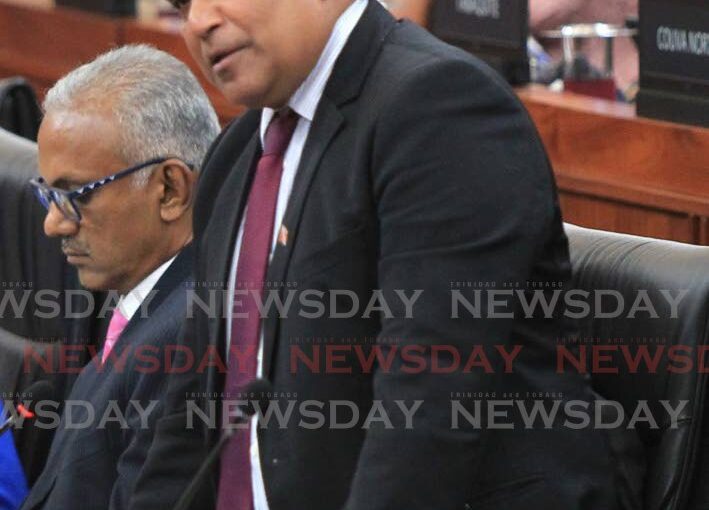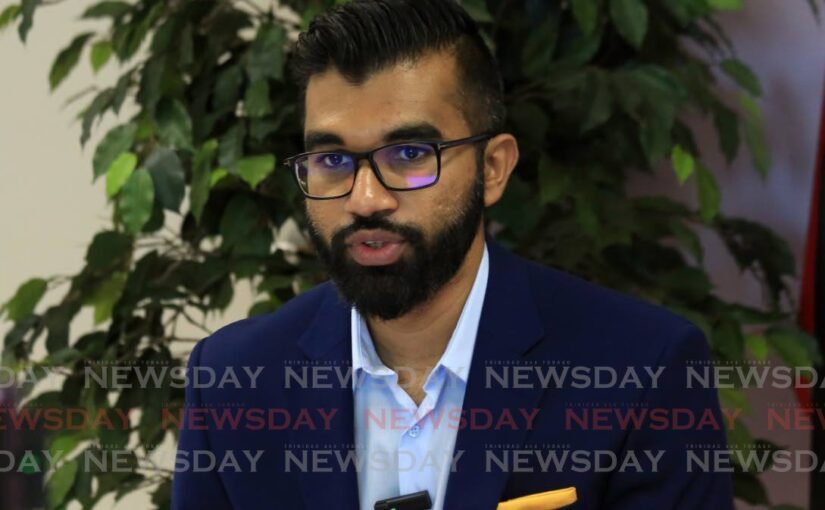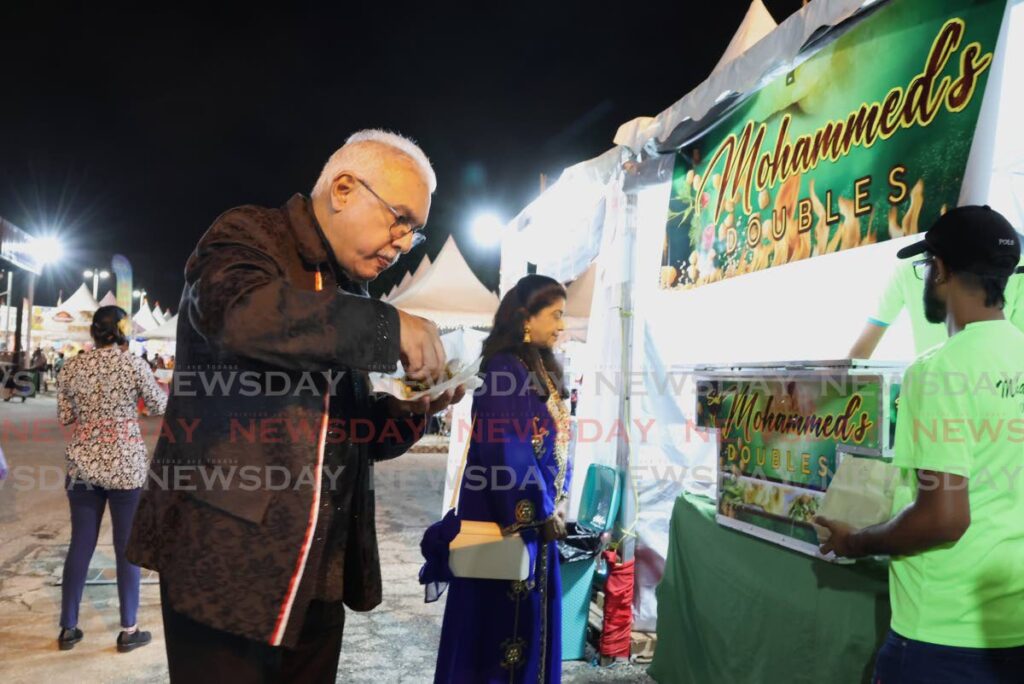

WE CAN DO IT: Melissa Edwards, valedictorian of the UWI Faculty of Science and Technology, says graduates are resilient and can tackle the world's most urgent problems. - Photo by Faith Ayoung
Under the theme of a kaleidoscope of resilience, UWI held the graduation ceremony for the science and technology and food and agriculture faculties on October 25 at the sport and physical education centre.
The ceremony saw graduates dressed in newly designed regalia meant to represent Caribbean identity, completing their bachelor’s degrees, master's degrees and doctorates, with many earning high distinction and first-class honours.
Dr Dodridge D Miller, in his first address to a graduating class as chancellor, congratulated the graduates and spoke about the university’s global approach to an evolving educational landscape.
“The often-used statement 'think global, act local' is good advice. The UWI, even with its limited resources, cannot afford to view the world only as a local or regional construct. To do so would fail its graduates and the region. We must engage the world and participate in important research and conversations on matters of global consequence.
“By doing so, we will continue to produce graduates with the academic competence and critical and strategic thinking to operate in any environment of their choosing. You, the members of the graduating class of 2024, are the beneficiaries of this global thinking.”
>
In keeping with the theme of reliance, valedictorian Melissa Edwards gave a heartfelt speech as she shared her story on her journey to graduation with her classmates.
Speaking about her humble beginnings as the daughter of a fisherman in Cedros, she said attending UWI seemed like an impossible dream and the end of her academic journey.
“Growing up, I watched my father brave the unpredictable sea, knowing that every journey was a step toward providing for his family. Today, as I stand here, I realise that our journeys—whether from Cedros or elsewhere—are not so different.
“We have all faced our own rough seas, but with resilience, determination, and the support of those who believe in us, we’ve arrived at this shore, ready to face whatever waters lie ahead. We leave behind the comfort of the familiar to step into a future full of possibility.”
She added while she and her peers started at UWI during a pandemic, they made the most of their time there.
GORGEOUS GRADS: Graduates show off their certificates at the close of the graduation ceremony for the Faculties of Science and Technology and Food and Agriculture at the UWI Sports and Physical Education, St Augustine on October 24. - Photo by Faith Ayoung
“Amidst the uncertainty of the future and in the unfolding of time, UWI became our second home — the harbour from which we would grow and set sail toward our future.
“These moments highlight that our time here was about more than academics — it was about growth, connections, and the experiences that shaped us.”
She added the challenges posed by the pandemic also taught them valuable lessons.
>
"If the last few years have taught us anything, it is that we are resilient, that we are capable of handling uncertainty. Let us prove that we are a generation like no other, prepared to tackle the world’s most urgent challenges."
As the ceremony ended, graduates took part in the symbolic waving of their canisters, which for the first time was captured by drone. The video of their smiling faces as they waved to their friends and family in the stands was displayed on a big screen as the drone flew around the room.
The graduates this year included regional government ministers, heads of non-governmental organisations and young people eager to make a change in the world.
St Vincent’s Minister of Agriculture, Forestry, Fisheries and Rural Transformation Saboto Caesar completed a post-graduate diploma in climate-resilient agricultural extension for community development.
Caesar praised the university for offering courses of study in climate change as he noted plans by regional agriculture ministers to reduce the regional food import bill by 25 per cent by 2025 are already in jeopardy.
Recalling the effects of the damage in St Vincent caused by Hurricane Beryl, Caesar pointed out that climate change is affecting the availability, affordability and accessibility of food throughout the world.
“If we do not emphasise the need to study in a very in-depth manner the source and the causes and how we are going to mitigate and how we are going to adapt as it relates to climate change and food and nutrition security, one of these days you can find yourself in a supermarket and the monies that you have in your pocket just won’t be able to meet the cost and the price of goods.”
He said he is eager to bring other ministers in his country on board the fight against climate change and to implement the knowledge he has gained to improve St Vincent’s agriculture sector.
“In my country, there are different agro-ecological zones that we are going to do the asset mapping, we're going to the situational analysis and we're going to work to see how we can bring the farmers together so that we can increase the awareness of our farmers in the country. There are some farmers who still do not have a good appreciation and a grasp as to the impacts of climate change. And this is something that we are going to address in a very detailed way.”
>
Ike-Ikelle Bradshaw and Melanie Garib, who completed their bachelor's degree in environmental studies, said they hope to further their education in climate studies so they can effect change in TT.
Bradshaw said he wants to contribute to pushing TT towards remaining an energy sector heavyweight while simultaneously embracing renewable energies.
“We are an energy sector country. I want to do something looking at sustainable energy so we could have less carbon emissions and become a more renewable energy country.”
Garib called on young people to marry technology and climate policies.
“We need to try to use technology to better support small-island developing states. We need to see more young people at the forefront because we have innovative ideas about things like climate legislation, climate justice and disaster management.”
Terrance Arjoon, whose niece graduated with a master's degree in computer science, drew loud applause after he celebrated her name being called by blowing a shofar, a musical instrument made with a ram’s horn and used for Jewish religious purposes.
Speaking to the media after the ceremony, Arjoon explained he did the same thing when his daughters graduated and thought he would surprise his niece by doing it for her.
He said the shofar held significant meaning for his family.
“Today is actually Simchat Torah, a day the Jews rejoice in the Torah, and today is also my niece’s graduation. So I’m sharing between rejoicing in the Torah and my niece graduating.”
>





